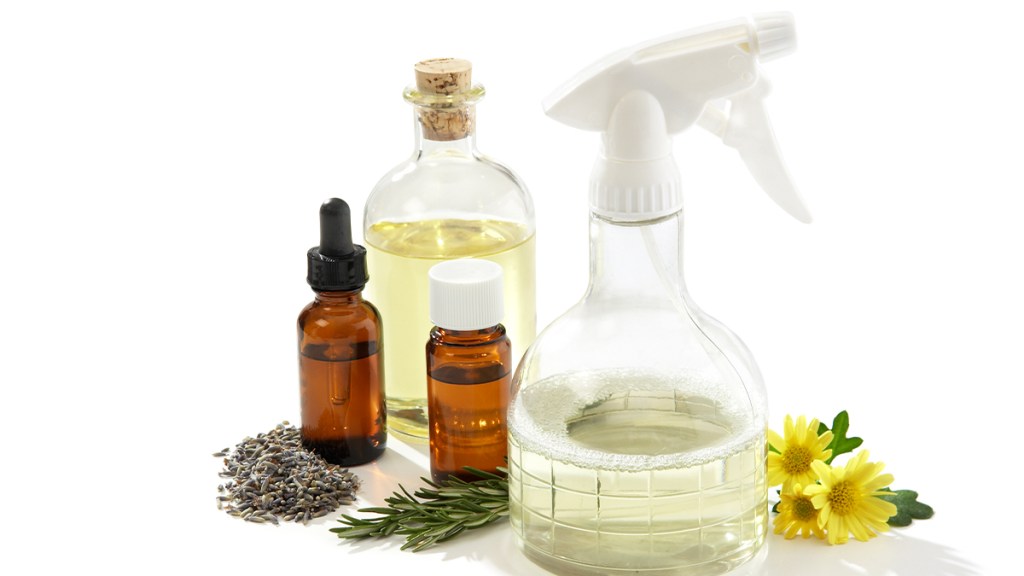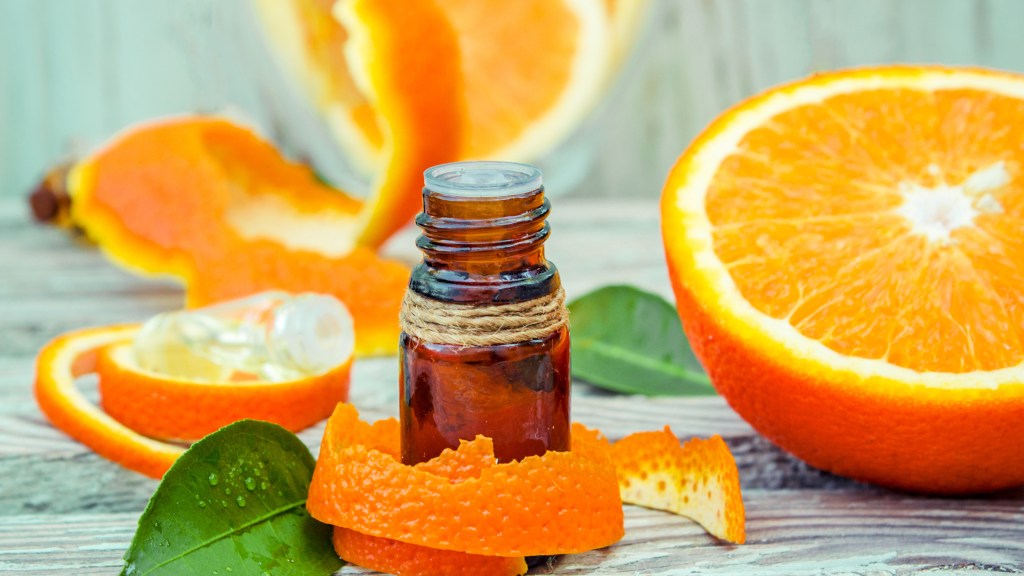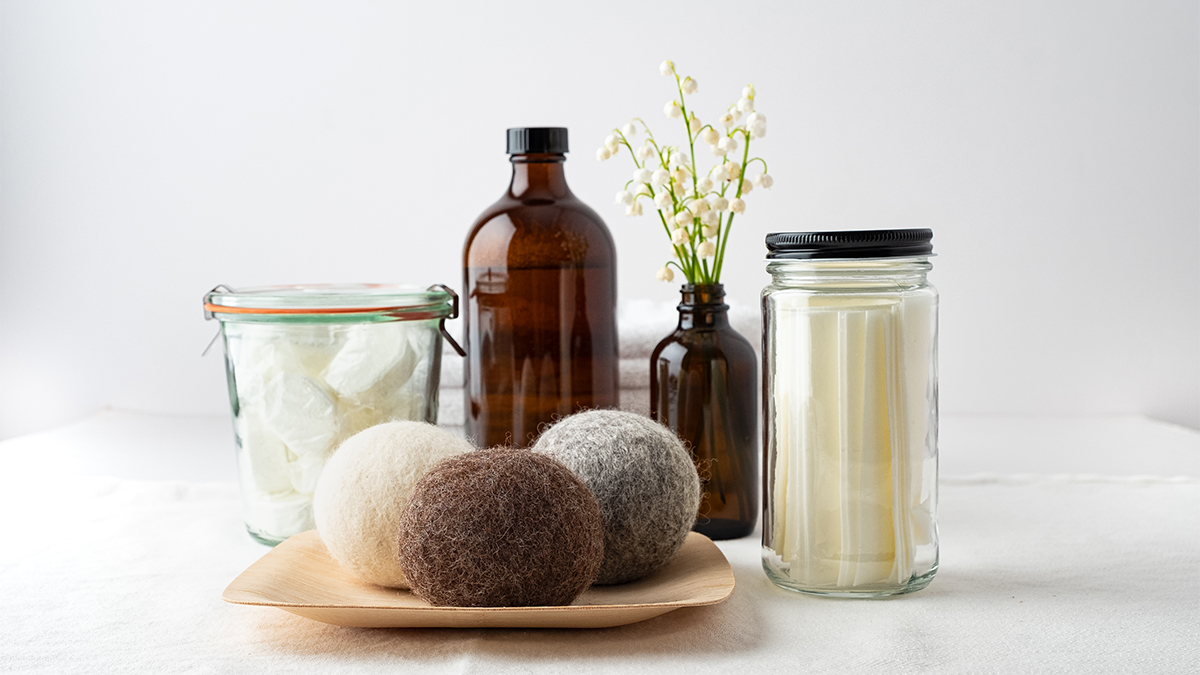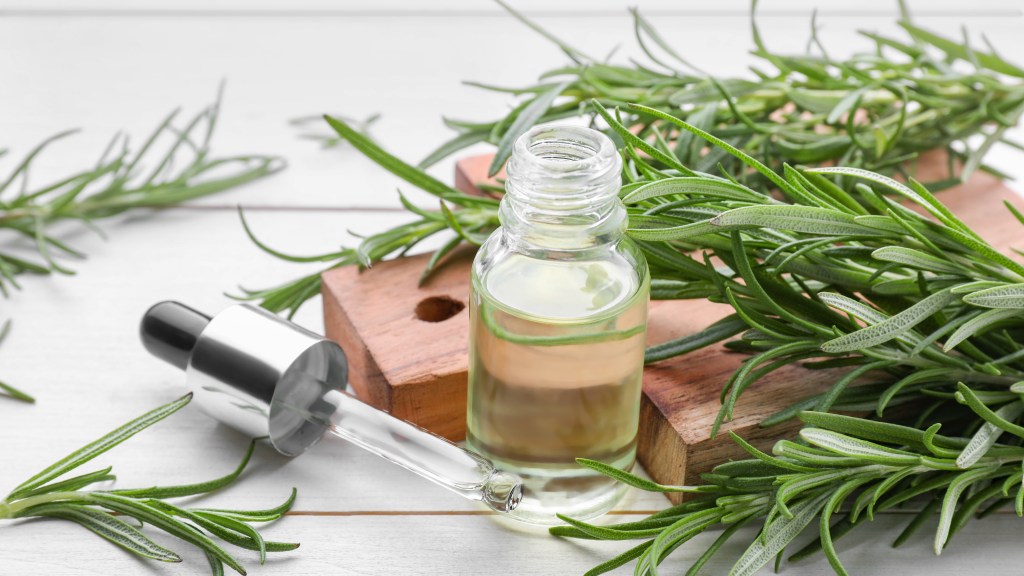The 5 Best Essential Oils for Cleaning + DIY Recipes to Freshen Every Part of Your House
Discover which oils work best on kitchen counters, wood furniture, bathtubs and more

We love the mood-boosting fragrance that essential oils add to our homes, but the natural oils extracted from the flowers, bark, leaves and fruit of plants aren’t just beneficial for aromatherapy purposes — pure essential oils have powerful antiseptic and antiviral properties that make them very effective for a number of household cleaning tasks. And with many people looking for simple ways to avoid chemicals and live more naturally at home, essential oils are becoming increasingly popular as the powerhouse ingredients in natural homemade cleaning solutions. Here, you’ll find a roundup of the best essential oils for cleaning and expert-approved way to use them in DIY cleaning solution recipes so you can get your home gleaming — naturally!
Why use essential oils for cleaning?

“Essential oils have many benefits over store-bought cleaners,” says Laura Ascher of the natural living blog OurOilyHouse.com. “They are non-toxic, eco-friendly and have powerful antimicrobial properties, making them effective against a wide range of germs and bacteria.”
Plus, Ascher notes that essential oils are sustainably sourced, making them an excellent alternative to harsh chemicals that pose a danger to our planet and to our health. What’s more? You can save money by making your own cleaning products using the oils, since they are highly concentrated. “A little goes a long way,” says Ascher.
What essential oil you use in your DIY cleaning products depends on what you need to clean, notes Tracey Black of the natural living blog DontMessWithMama.com. “I personally like to use essential oils to address three main issues when it comes to cleaning: degrease, disinfect and deodorize.” But many oils are so versatile they can do these things and more.
Below, you’ll find the best essential oils and the easy DIY recipes for using them to to tackle all of the above issues and more.
1. Best degreaser: Lemon oil
The high concentration of citric acid in lemon oil makes it a powerful cleaner. It’s antibacterial, antifungal and antiviral, which makes it effective against a wide range of germs and microbes., explains Black. Plus, its natural fragrance is an added bonus, leaving areas smelling fresh and clean without the use of synthetic chemicals.
Black’s tip: Always remember to properly dilute essential oils before using them for cleaning to avoid any adverse reactions or damage to surfaces.
What it can do best: Degrease household surfaces like microwaves, refrigerators and stovetops. “Its high acidity helps break down grease and grime while its fresh scent leaves a pleasant aroma behind,” says Black.
Recipe: Lemon essential oil degreaser:
- ¼ cup vinegar (it also cuts through grease and grime)
- ½ cup distilled water
- 10-20 drops lemon essential oil (like Young Living Lemon Essential Oil, Buy from Amazon, $18.82)
To do: Mix all ingredients in a spray bottle; shake well then spray on surfaces wipe down and you’re done!
This video shows an easy how to:
What else lemon oil can clean:
- Glass and mirrors: When mixed with water or vinegar, lemon oil makes a great glass cleaner, says Ascher. Its acidic properties help dissolve residues without leaving streaks.
- Laundry: Adding a few drops of lemon essential oil to your laundry can help remove stains and odors. It also acts as a natural bleach alternative, brightening whites.
- Wood and leather: Diluted lemon oil can be used to clean and shine wood furniture and polish leather goods. It helps restore shine and removes stains without damaging the surfaces.
2. Best for wood polish: Orange oil

“Orange oil is a great alternative to lemon oil, as it has many of the same cleansing, disinfecting and purifying properties of lemon essential oil,” notes Jane Seaman of the home decor blog JaneAtHome.com. Primary components of the oil, like limonene which is a solvent that helps break down oils and dirt, make it effective for various cleaning tasks. Additionally, orange oil’s citrusy aroma makes it a popular choice for natural cleaning solutions, leaving spaces smelling clean and fresh.
What it can do best: When mixed with olive oil, orange essential oil makes a great wood polish, since the oil lifts dirt and the oil conditions so dull wood looks like new. Simply add ½ cup of olive oil and 10 drops of orange essential oil
Recipe: Orange essential oil furniture polish
- ½ cup olive oil
- 10 drops orange essential oil (like NOW Foods Orange Oil Sweet Buy from Amazon, $8.54)
To do: Add ingredients to a jar, twist on jar’s lid and shake to combine. Dip a dry cloth in the solution and rub into the furniture, going with the grain, says Black. Then just buff with a clean cloth. Tip: Spot test on an inconspicuous area of the wood furniture.
What else orange oil can clean:
- Greasy surfaces: Orange oil is effective in cutting through grease and grime on various surfaces like countertops, stovetops and appliances. Its solvent properties help dissolve oil and dirt, says Seaman.
- Upholstery: The oil can be used in homemade upholstery cleaners to help lift stains and refresh fabric surfaces due to its grease-cutting abilities, adds Ascher.
- Dishes and dishwashers: Black says that adding a few drops of orange oil to dish soap or dishwasher detergent can help enhance the cleaning power and leave dishes smelling fresh.
- Floors: When added to a homemade floor cleaner, orange oil can effectively clean and deodorize floors, says Black. (Click through for more DIY floor cleaners.)
3. Best disinfectant: Tea tree oil
The main active component in tea tree oil, terpinen-4-ol, is responsible for its antimicrobial effects, says Black. This component helps destroy and inhibit the growth of various bacteria, fungi and viruses, making tea tree oil an excellent natural disinfectant and cleaner. “It’s important to dilute tea tree oil properly before use, as it’s highly concentrated and can be irritating to the skin in its undiluted form,” adds Ascher. Additionally, it’s advisable to test it on a small area before applying it to larger surfaces to ensure compatibility and avoid any adverse reactions.
What it can do best: “Tea tree oil is ideal for eliminating mold and mildew on household surfaces and items such as shower curtains, tile grout, toilets and other damp areas since its antifungal properties help eliminate mold spores,” says Ascher.
Recipe: Tea tree mold & mildew buster
- ¼ cup white vinegar
- ¼ cup dish soap
- 10 drops of tea tree essential oil (like Organic Tea Tree Essential Oil, Buy from Amazon, $6.39)
To do: Just add ingredients to a spray bottle and spritz on spotty/moldy areas. Let sit for 30 minutes, then simply wipe away with a brush. Vinegar is also a natural antifungal that kills mold and mildew on contact.
What else tea tree oil can clean:
- Household surfaces: It’s useful for cleaning and disinfecting surfaces like countertops, sinks and doorknobs, says Ascher. Its antimicrobial properties make it effective against bacteria commonly found in households.
- Laundry: Adding a few drops of tea tree oil to laundry can help disinfect clothes and linens. “It’s particularly useful for items prone to bacterial or fungal growth, like gym clothes and towels,” adds Seaman.
- Carpets: Tea tree oil can be added to homemade carpet cleaners to disinfect and deodorize carpets, especially in high-traffic areas.
- Toilet bowls: According to Seaman, due to its antibacterial properties, tea tree oil can be used to create a natural toilet bowl cleaner, effectively combating germs and odors.
4. Best for deodorizing: Lemongrass oil

The primary components of lemongrass oil, such as citral and limonene, contribute to its cleaning abilities. Citral has antimicrobial properties, making lemongrass oil effective against a variety of germs and bacteria. Limonene, found in citrus oils, helps dissolve dirt and grease.
What it can do best: “Lemongrass essential oil is one of the best when it comes to odors,” says Black. “The scent is similar to lemon but stronger, and it’s very effective for neutralizing strong odors like smoke or even cooking smells like fish,” she adds. “But, personally, I love to use lemongrass oil in my laundry,” says Black.
Recipe: Lemongrass laundry deodorizer
- 2 Tbs. laundry detergent
- 3-5 drops lemongrass essential oil (Brooklyn Botany Lemongrass Essential Oil, Buy from Amazon, $7.99)
- Wool dryer balls
To do: Add the lemongrass oil to your detergent when doing a load of laundry. And you can even add 2 drops of lemongrass to a wood dryer ball and toss in the dryer with the laundry for an extra-fresh scent boost.
What else lemongrass oil can clean:
- Household surfaces: Lemongrass oil is effective for cleaning countertops, floors and surfaces, says Seaman. “Its antifungal and antibacterial properties help sanitize and freshen these areas.”
- Bathrooms: Lemongrass oil can be added to homemade bathroom cleaners to help sanitize surfaces and leave a pleasant fragrance.
Bonus: Lemongrass oil is known for its insect-repelling properties, adds Ascher. “It can be used as a natural way to deter insects like mosquitoes, ants, and flies from entering your home.”
5. Best air purifier: Rosemary oil

Thanks to its compounds like cineole, camphor and alpha-pinene — which have antimicrobial properties making the oil effective against bacteria, fungi and viruses — rosemary essential oil is a powerful cleaner and air purifier, says holistic health coach Rigel Smith of BlissedMama.com. “Its stimulating aroma boosts mental activity too — perfect when you need some motivation to tackle those chores!”
What it can do best: Lift soap scum and residue from your bathtub, sink and glass shower door. And Smith says a simple rosemary essential oil cleaning paste is the best way to do it.
Recipe: Rosemary shower & tub cleaner
- ½ cup baking soda
- 2 Tbs. Castile soap
- 4 drops each of rosemary oil (like MAJESTIC PURE Rosemary Essential Oil, Buy from Amazon, $7.03) and lemon essential oil
To do: Stir together ingredients. Use the cleaning paste with your favorite scrubber to effortlessly clean and sanitize sinks, tubs and shower floors. Castile soap and the essential oils work together to lift stubborn soap scum, while the gritty baking soda helps buff away the grime.
What else rosemary oil can clean:
- Household surfaces: Rosemary oil can be used to clean and disinfect countertops, tables and other surfaces, says Ascher. Its antimicrobial properties help in sanitizing these areas effectively.
- Kitchen appliances: According to Smith, the oil is useful for cleaning kitchen appliances like microwaves, ovens and refrigerators due to its ability to cut through grease and grime
- Wooden surfaces: Diluted rosemary oil can be used to clean and polish wooden furniture, adds Black. “It helps in removing dust and grime while providing a natural shine.”
Bonus: “When diffused, rosemary oil can purify the air by eliminating airborne bacteria and microbes, creating a fresher environment,” adds Smith.
Caveat: Always consult your health care professional before using any essential oils if you’re pregnant or on or with a baby or child.
For more ways to use essential oils, click through these stories:
8 Essential Oils That Will Regrow Thinning Hair — and How to Use Them
These Essential Oils for Asthma Helped One Woman Ditch Her Inhalers
The 6 Best Essential Oils For Congestion: Expert Advice on How & When to Use Each
















